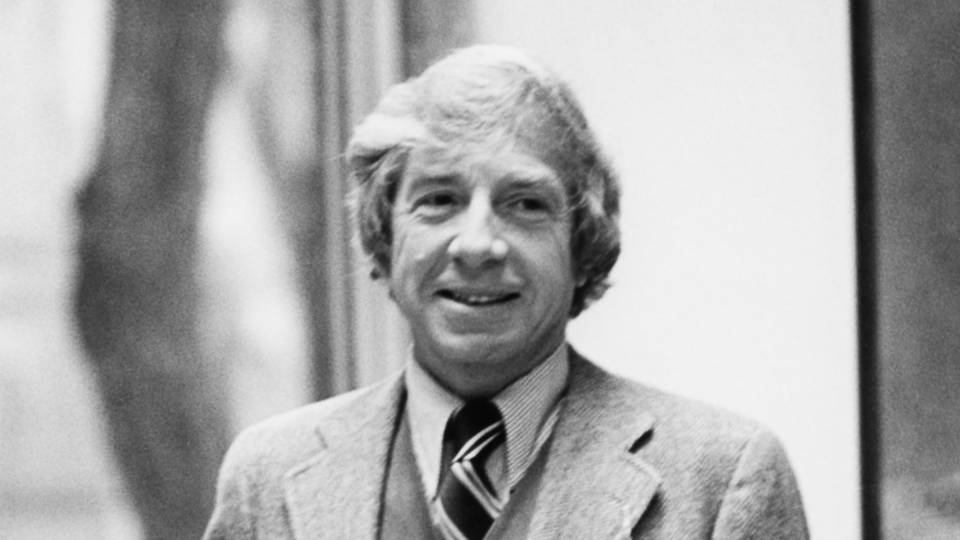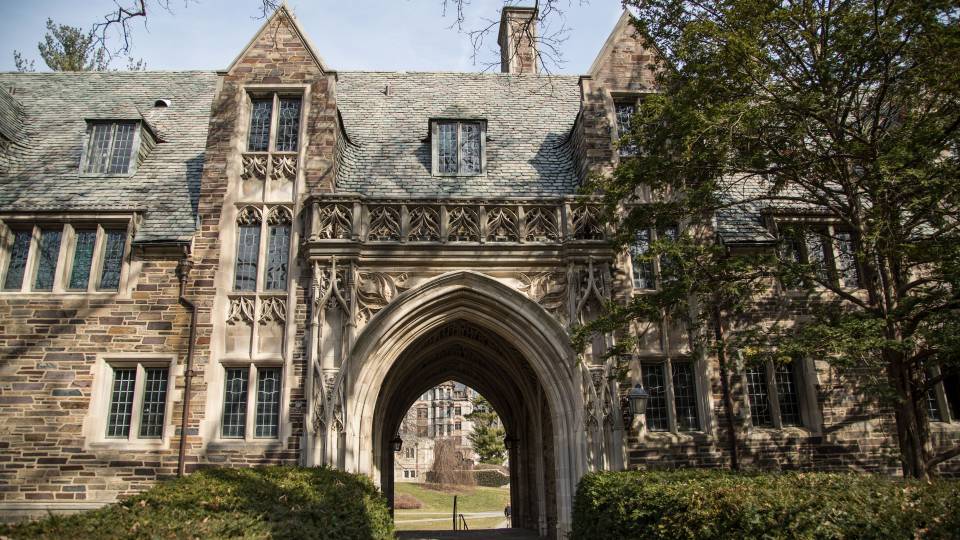Anson “Andy” Rabinbach, the Philip and Beulah Rollins Professor of History, Emeritus, died from complications of a heart attack at the Policlinico Umberto I hospital in Rome on Feb. 2. He was 79.

Anson Rabinbach
Rabinbach joined Princeton’s faculty in 1996 and transferred to emeritus status in 2019. He also served as director of the Humanities Council’s Program in European Cultural Studies(Link is external) (Link opens in new window) from 1998 to 2008.
He was known for his scholarship and teaching on the social, cultural and intellectual history of modern Europe, with research interests spanning Nazi Germany, Austria, fascism, labor and European thought in the 19th and 20th centuries.
“Tough-minded and pessimistic in his approach to topics including totalitarianism and genocide, Rabinbach shed important light on some of the darkest moments of the 20th century,” said Angela Creager, the Thomas M. Siebel Professor in the History of Science, professor of history and department chair.
Rabinbach was a co-founder of the journal New German Critique, which brought the radical perspective of critical theory and its wide-ranging analysis of culture, society, literature and politics into the mainstream. Like his mentor George Mosse, he examined Nazism as a broad ethos and aesthetic that united ideological and cultural aspects to penetrate all aspects of life, while at the same time attending to the ramifications of violent antisemitism.
“He taught history but also taught, by example, how to keep on keeping on, through thick and thin — an example to heed now more than ever,” said Sean Wilentz, the George Henry Davis 1886 Professor of American History. “No anecdote can do justice to his luminous spirit as well as intellect, expansive and skeptical, joyous, often comical, but with a pervasive sense of tragedy.”
Wilentz said his friendship with Rabinbach went back “nearly 50 years, long before he started teaching at Princeton, and the loss is deeply personal as well as professional.”
‘An intellectual who looked into the darkest corners of 20th century European history’ with a ‘great personal warmth’
Philip Nord, the Rosengarten Professor of Modern and Contemporary History, Emeritus, also shared a bond with Rabinbach that preceded their working relationship at Princeton.
“He was a serious man, an intellectual who looked into the darkest corners of 20th century European history, but he also brought to his work great personal warmth and a wry, streetwise sense of humor,” Nord said.
“I remember him challenging a seminar once: tell me your periodization, and I will tell you your politics. I don’t think Andy meant the students to take the aphorism literally,” Nord said. “He wanted, rather, to provoke them into reflecting on how their own political engagements shaped the way that they approached the study of history.”
Rabinbach was born in the Bronx, New York, in 1945 to Jewish immigrants Gabriel Rabinbach and Esther Kleinman. After graduating from Hofstra University in 1967, he earned his master’s in 1970 and his Ph.D. in 1973, both at the University of Wisconsin-Madison.
Rabinbach began his academic career at Hampshire College in Massachusetts and taught at the Cooper Union for the Advancement of Science and Art in New York for 11 years. Before he was appointed a professor at Princeton, where he remained for 23 years, Rabinbach had lectured at the University from 1980 to 1984 and was a member at the Institute for Advanced Study from 1983 to 1984.
Rabinbach was the author of five books, including “The Crisis of Austrian Socialism: From Red Vienna to Civil War 1927-1934” (1983), “In the Shadow of Catastrophe: German Intellectuals Between Apocalypse and Enlightenment” (1997), and the co-editor of “The Third Reich Sourcebook” (2013), a translation of over 400 primary sources documenting Nazi Germany with historian Sander Gilman, among others.
His best-known work, “The Human Motor: Energy, Fatigue, and the Origins of Modernity” (1990), is a critical analysis of the idea of the body as an energetic system, based on the physics of Hermann von Helmholtz and organized thought in late 19th century Europe, focusing in particular on the science of work and the “utopia” of a “body without fatigue.” “The Human Motor” has been translated into German and French. In 2018, Rabinbach released a sequel, “The Eclipse of the Utopias of Labor.”
His most recent book, “Staging the Third Reich: Essays in Cultural and Intellectual History” (2020), is a collection of essays representing his scholarship across four decades of research, co-edited by his former Princeton undergraduate student Stefanos Geroulanos, Class of 2001, and historian Dagmar Herzog.
In addition to co-founding the New German Critique, regarded as the premier interdisciplinary journal of German studies in America, he published more than 40 essays, articles, book introductions and reviews in publications including The New York Times, The Times Literary Supplement, The Nation, The Philadelphia Inquirer and Dissent.
A ‘Doktorvater — doctoral father — in the truest sense of the word’
At Princeton, Rabinbach taught courses including “History of European Fascism,” “The Intellectual History of Europe” and “Europe in the 20th Century,” as well as the graduate seminars “European Intellectual History” and “20th Century European History.”
Joshua Derman, an associate professor of humanities at Hong Kong University of Science and Technology, earned his Ph.D. in 2008 and said Rabinbach “was a wonderful mentor and a close friend,” as well as the reason he came to Princeton.
“As a scholar, he was a tremendous role model and mentor. As a person, he was down-to-earth, genuine and very funny. With Andy, learning took place through conversation, and he was open to talking about anything that mattered — whether it was my dissertation chapters, books, movies, music or family,” Derman said.
“When the going got tough, as it does in every doctoral journey, he gave me the confidence that I could become the kind of historian I wanted to be,” he added. “That made him what the Germans call a ‘doktorvater’ (doctoral father) in the truest sense of the word.”
Molly Loberg, now a professor of history at California Polytechnic State University who earned her Ph.D. in 2006, said she appreciated how Rabinbach “took delight in his students’ insights and ideas” and immediately made her feel welcome on campus.
“I am grateful for that because I was unsure of myself as a new graduate student,” Loberg said, noting that Rabinbach openly embraced and equally valued the differing perspectives of his students in the classroom and beyond.
“Andy made me feel like I belonged,” she added.
Rabinbach’s many honors include Guggenheim, American Academy in Berlin, American Council of Learned Societies and National Endowment for the Humanities fellowships, as well as a visiting professorship in Russia as a Fulbright Senior Scholar, among others. In 1987, he received Austria’s Victor Adler State Prize for outstanding achievements in the field of social and cultural history.
Rabinbach served on the editorial boards of Dissent and the academic journals International Labor and Working-Class History and the Austrian History Yearbook. He was also a member of the American Historical Association.
Rabinbach is survived by sons Jake and Jonah, daughters-in-law Shannon Esper and Sophia Baptista, grandchildren Otis, Bernadine and Moses, and former wife, Jessica Benjamin.
A memorial will be planned in the spring.
View or share comments on a memorial page(Link is external) intended to honor Rabinbach’s life and legacy.




